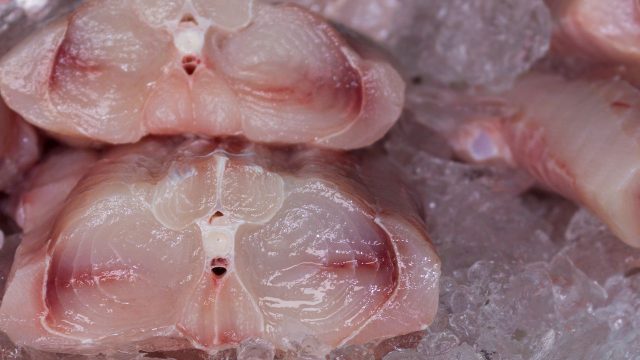
Shark meat, a culinary delicacy in parts of South America, Europe, Asia and Australia, may not be what it seems. Many shark products sold within the U.S. are mislabeled, with some being endangered species of shark. This misrepresentation can be both harmful ecologically, as well as medically for humans consuming the shark meat.
Deep fake
The shark meat industry is worth approximately $2.6 billion and involves more than 200 countries and territories, according to a 2021 report by the World Wildlife Fund. There are over 20 species of sharks that fisherman in the U.S. are forbidden from catching because of their potential for extinction. However, “traceability is one of the biggest challenges facing the global shark meat trade,” said Forbes. Shark products can “change hands multiple times and cross several borders,” making it “easy for illegally caught sharks or those from unsustainable fisheries to enter the supply chain.”
Shark meat in the U.S. is “often mislabeled as another species or generically labeled as ‘shark,’” said a study published in the journal Frontiers in Marine Science. The study examined 30 shark products from the internet and stores in Washington, D.C., North Carolina, Florida and Georgia. Using DNA barcoding, scientists were able to identify the shark species in 29 of the samples. They found that “31% percent of the bought samples turned out to be from four endangered or critically endangered species: great hammerhead, scalloped hammerhead, tope and shortfin mako shark,” said a news release about the study.
Ambiguously labeled meat can be a health hazard. Some of the shark species identified, including “scalloped hammerhead, great hammerhead and dusky smooth-hound sharks, are known to contain high levels of mercury and methylmercury, as well as arsenic,” said CBS News. These metals can “damage the brain and central nervous system,” as well as “lead to cancer,” said the news release. All three have also “been implicated in the impaired cognitive development and death of developing babies.”
Blood in the water
Shark populations have “already dropped by more than 70% since the 1970s due to bycatch, climate change, habitat destruction and overfishing,” said Newsweek. Of the approximately 550 known species of sharks, 14% are listed as vulnerable, 11% as endangered and 12% as critically endangered, according to the International Union for the Conservation of Nature. Also, 74 species of shark are “considered at risk by the Convention on International Trade in Endangered Species of Wild Fauna and Flora (CITES),” said the release. This means that “international trade in their products is banned or heavily regulated.”
“The legality of selling shark meat in the United States depends largely on where the shark was harvested and the species involved, due to regulations under CITES and the Endangered Species Act,” Savannah Ryburn, a marine ecologist at the University of North Carolina who led the study, said in the release. “However, by the time large shark species reach grocery stores and markets, they are often sold as fillets with all distinguishing features removed, making it unlikely that sellers know what species they are offering.” To combat this, sellers should be required to provide the specific species of shark they are selling, and consumers should avoid buying unlabeled or ambiguously labeled meat.
It could cause both health and ecological problems




